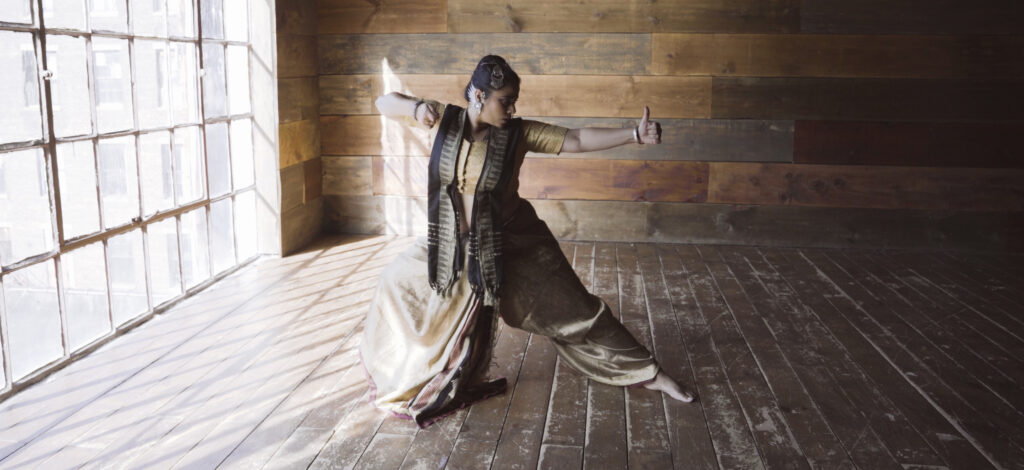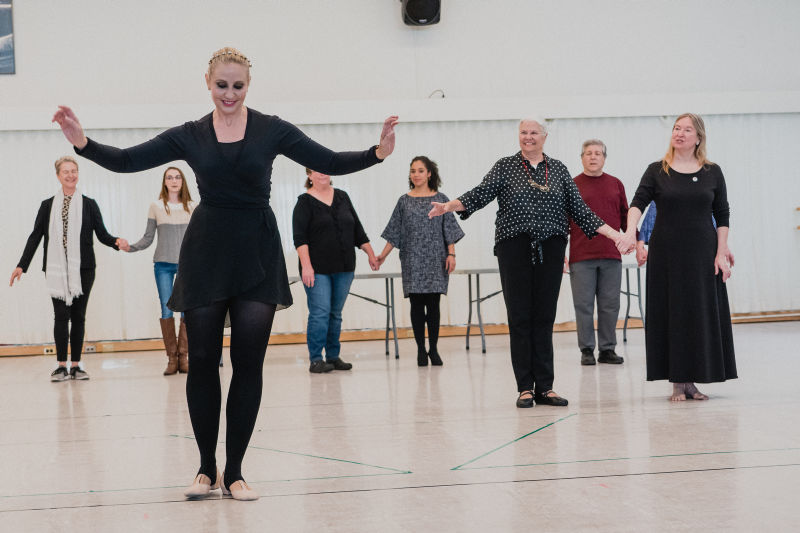[ad_1]
For dancers, strengthening appearing skill can improve not solely artistry and confidence but in addition storytelling onstage. In any case, there may be numerous overlap between the 2 artwork kinds. “Appearing is generally listening and being current,” says Isadora Wolfe, the affiliate creative director of Sleep No Extra and a trainer of the Appearing for Dancers class at The Juilliard College. “Dancers have these expertise. That’s what we’re doing on a regular basis: listening in 1,000,000 other ways.”
Discover Your Voice
Venturing into a brand new artwork kind requires stepping past consolation zones and dealing with uncertainty. This discomfort is usually a catalyst for development, nevertheless, fostering adaptability and increasing artistic horizons. Many dancers aren’t accustomed to utilizing their voices onstage, so vocalizing for the primary time onstage could be intimidating. Wolfe says a willingness to strive is essential: “After we’re embarrassed about our voice, or really feel disgrace about it, or simply really feel humorous about it as a result of we haven’t used it lots, we reduce off a certain quantity of affect and power, even when we’re doing a venture that’s utterly silent.”
Wolfe recommends dancers observe a collection of straightforward vocal warm-ups (see sidebar) to get extra comfy utilizing their voice. It will also be useful to observe delivering a monologue. “Begin to hearken to your self saying the phrases,” Wolfe says. “You may video your self. When you have another person, whether or not that’s a good friend or a roommate or a member of the family, turning into comfy talking phrases out loud in entrance of them is one other option to begin to grow to be comfy along with your voice, be capable of hear your self, and loosen your inhibitions.”
Draw on Emotion
Studying to behave entails exploring a spread of feelings and an understanding of how one can authentically painting them. Dancers who research appearing can faucet right into a wider vary of feelings, enabling them to convey extra nuanced and compelling tales by their actions. Bharathi Penneswaran, a New York Metropolis–based mostly bharatanatyam trainer, performer, and creative director of Aalokam, says that taking note of the best way emotions have an effect on the physique in day-to-day life may also help in expressing the identical emotions onstage. “What occurs when your physique is pleased? Do you progress your limbs? Do you look very stiff? Or is it simply your face that exhibits the expression?” she asks.

Kristi DeCaminada, a principal character dancer at San Francisco Ballet, provides that it’s essential to concentrate to facial expressions when specializing in emotion in dance efficiency. She recommends utilizing the mirror to gauge whether or not facial expressions are matching the power of the dancing, the music, and the story. “The expression in your face can’t be overexaggerated; it must be pure and plausible,” she explains. “It must be one thing you’d do—it must be your personal and the way you’d interpret that emotion.”
Stretch Your Artistry
Dancers curious about enhancing their appearing can undertake numerous methods as a place to begin. Enrolling in appearing lessons, or workshops particularly designed for dancers, can present a structured basis. These lessons typically give attention to basic rules, comparable to character growth, emotional expression, and improvisation. Wolfe encourages dancers to participate in group theater productions as a option to achieve invaluable expertise. “If you may get concerned with a non-Fairness manufacturing or a group manufacturing, you’ll be taught a ton about how a bit of theater is made,” she explains. “There’ll most certainly be individuals within the room which have a ton of coaching, so simply being within the rehearsal room in a manufacturing of any stage will probably be an appearing class in and of itself.”
DeCaminada highlights the worth of observing different dancers in rehearsal and onstage, in addition to on video. Take note of how they interpret a job, infuse every step with emotion, and use the choreography to inform a narrative. “Watching as a lot dance as potential, and watching as many films and as a lot appearing as potential, is so essential,” she says.

Heat Up Your Voice
Isadora Wolfe, an Appearing for Dancers trainer at Juilliard, recommends these vocal warm-ups for dancers studying to search out their voices:
- Face and jaw therapeutic massage: Gently therapeutic massage the chin, jaw, sinuses, and temples along with your fingertips. “A part of making ready your voice is enjoyable as a lot as potential, to supply the healthiest and richest sound,” Wolfe says.
- Lip buzz/trill: Press your lips collectively and blow out barely, making a buzzing sound. See when you can preserve this sound whereas altering octaves.
- Buzzing: Wolfe says buzzing, whether or not it’s a scale or your favourite track, is a superb warm-up or cool-down train that received’t pressure your vocal cords.
[ad_2]

